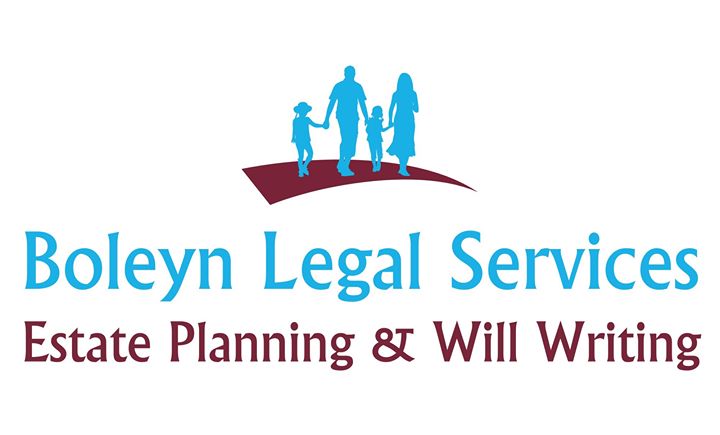The Executor
An executor is named in a will to handle a person’s estate (their money, property and possessions) after they die.
Who can be an executor?
You can act as an executor even if you will inherit something from the will. The person making the will can appoint up
to four executors, so you may share the responsibility with others.
What do executors do?
- collect all assets and money due to the deceased person’s estate (including property)
- pay any outstanding taxes and debts (out of the estate)
- distribute the estate to the people who are entitled to it under the terms of the will
- make sure all the property owned by the deceased person is safe and secure, as soon as possible after the death.
There are a range of tasks you must carry out as an executor.
Register the death and get copies of the will
- If necessary, register the death and notify the family doctor.
Consider how many copies of the death certificate to order, as they cost less if you ask for them when registering
the death than if you request them later. Unless you are employing APS Legal & Associates
to deal with the estate, you may need a copy for each company that holds money or other items of value that belonged to the person, for example,
the bank, TV Licensing, insurance providers and landlord. These companies are sometimes known as asset holders.
- Find out where the most up-to-date version of the deceased person’s will is held and get the original (or a copy if that isn’t possible). You will need to provide a death certificate and proof of your identity. Any other executors must confirm they are happy for you to have the will.
- Make copies of the will for co-executors and beneficiaries and then put the original away in a safe place. Don’t tamper with the original or any copies in any way (this includes adding staples or paper clips).
Arrange the funeral and talk to family and friends
- If necessary, arrange the funeral. Check the will to find out if the deceased person had any funeral wishes. If they had a funeral plan, contact the provider immediately.
- When you receive an invoice for the funeral, you can take it to the deceased person’s bank or building society along with a death certificate, the will and your identification. You will be issued with a cheque for the amount due, made payable to the funeral director.
- Inform family, friends and work colleagues of the death. You could put a notice in the local or national newspapers with funeral details so people know when it will take place and can attend if they wish.
Valuing the estate
If you are the executor, you will need to value the estate of the deceased person. Start with everything that they owned
at the time of their death. This includes property, possessions and money, less everything they owed, such as mortgage,
loans and credit card bills. For assets such as property or land, you should get a professional valuation. HMRC recommends having items worth over £500 valued professionally.
Apply for probate
A grant of probate gives you the legal right to deal with someone’s estate. First, check whether a grant of probate is needed. You may not need one for a small estate (historically less than £5,000 but in practice sometimes more in England and Wales, or less than £10,000 in Northern Ireland). In this case write to the bank, building society or whoever is holding the money, and ask whether they will make a payment without receiving a grant of probate.
To apply for probate, complete form PA1 and the relevant Inheritance Tax (IHT) form. These should be sent to the local probate registry along with:
- an official copy of the death certificate
- the original will and three copies of it
- the fee of £215 (£200 in Northern Ireland).
When you receive a grant of probate or confirmation, make several copies as you will need them for asset holders.
Send an office copy (as issued by the Probate Registry) with instructions to asset holders. When the assets are released,
pay the proceeds into the executor’s account (except anything that has been specifically bequeathed).
You will need to pay any IHT due before applying for the grant of probate.
Property
If there is an unoccupied property, secure it and inform the insurers immediately. The estate may have to replace the
deceased person as the policy-holder, and the insurer may ask you to make regular checks on the condition of the
property while it’s unoccupied. You may have to get a new home insurance policy if the current one doesn’t cover an
empty property.
Finances
These are the main tasks you need to do when dealing with a deceased person’s finances:
- Send an original death certificate to any asset holders, such as banks, building societies and insurance companies. Ask for direct debits to be cancelled, and find out all account balances and investment values at the date of the death.
- Stop the payment of salary, pensions and state benefits.
- Advise the issuers of credit cards, passport, driver’s licence and TV licence of the death, and act on their instructions.
- Request information on any debts the deceased person had, and any overpayments made to them. Check through their paperwork looking for things like bills or statements, and contact organisations like energy suppliers or the local council to ask if the deceased person owed any money.
- If you think there might be more debts than assets, the estate might be insolvent, and you will need some professional help before you do anything else.
- Contact the deceased person’s tax office to find out whether any other tax, such as Income Tax, is owed.
- Some banks offer an executor’s account into which you can transfer any money paid into the estate. This will stop estate money getting confused with your personal finances. Talk to your bank or the bank of the deceased person to see if they offer executor’s accounts.
- Pay any outstanding tax and bills. You must pay any outstanding debts or bills before you can legally distribute the estate. It is advisable to place ‘statutory notices for creditors’ in the press, allowing two months for claims to be made. If you don’t, you and any other executor(s) will be personally responsible for any claims that arise. If you put up the notice, any future claims will be made against the beneficiaries instead.
- Get clearance from HMRC for any IHT, Income Tax or Capital Gains Tax liability.
Distribute the estate
These are the main tasks for distributing the estate of a deceased person:
- If the will states a specific item of personal property is to be given (‘bequeathed’) to someone, you can do this before probate is granted, but make sure to value the items
- When probate has been granted, draw up estate accounts for each beneficiary, accounting for all the assets collected, income accrued and any bills paid.
- Carry out bankruptcy searches on the beneficiaries by searching for them on the Individual Insolvency Register.
- Visit www.gov.uk/search-bankruptcy-insolvency-register or call the Insolvency Service enquiry line on 07908533290 to find out more. Beneficiaries who are bankrupt may not be entitled to receive their inheritance from the estate.
- Distribute the estate in accordance with the terms of the will, making sure at least two trustees have been named for any gifts left to children under 18. You may want to wait at least six months after probate is granted before distributing the estate in case any claims are made against it. In Scotland, it is legally advised that you wait six months after the date of death before distributing the estate.
- Give each beneficiary an R185 tax form (ask the Probate and Inheritance Tax Helpline for more information) for their share of estate income. Make sure you keep clear records of the work you’ve done, so you can answer any questions or challenges over how you administered the estate.
Boleyn Legal Services & APS Legal & Associates will endeavour to help you should you have any issues in the role of Excutor.

